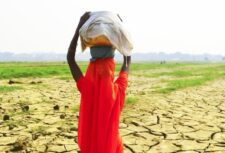Disclaimer: This article is more than 16 years old, and may not include the most up-to-date information or statistics. Please verify information with more recent sources as needed, and if you have any questions contact our Press Office.
12 June 2007
On Wednesday 20 June, Anti-Slavery International is submitting over 31,000 signatures from its Fight for Freedom Declaration at a meeting in Parliament, calling for measures to increase understanding of the Transatlantic Slave Trade, address its legacies and make ending slavery today a priority.
The submission is being made at a meeting on slavery as part of activities marking the bicentenary of Britain’s abolition of the slave trade. Slavery Past and Present, will be in the Macmillan Room, Portcullis House, 6.30-7.30pm.
Jeremy Corbyn MP, member of the Parliamentary Exhibition Panel, and Aidan McQuade Director of Anti-Slavery International will be speaking; a Government spokesperson is to be confirmed.
“These signatures send a clear message that the public will not tolerate anything less than the eradication of slavery being at the top of governments’ agendas and for slave trade legacies to be addressed. It is inexcusable that in the 21st century at least 12 million men, women and children are forced to live as slaves. It is time to end slavery once and for all,” Aidan McQuade Director of Anti-Slavery International said.
Anti-Slavery International is calling for:
- Universal ratification and implementation of international anti-slavery standards;
- Stronger international and domestic monitoring mechanisms to identify and counter slavery;
- Effective linkage between development programmes and slavery;
- Engaging business to identify and eradicate slavery from their international supply chains;
Action to tackle the legacies of the Transatlantic Slave Trade, including establishing an annual national slavery memorial day.
The signatures are from Anti-Slavery International’s Fight for Freedom 1807-2007 Declaration, which is part of the Fight for Freedom Campaign commemorating the bicentenary of Britain’s abolition of the slave trade.
NOTES TO EDITORS:
- Anti-Slavery International is the world’s oldest human rights organisation and campaigns for the eradication of slavery, exposing current cases,supporting local organisations to release the minimum 12.3 million people in slavery, and the implementation of international laws against slavery. For further information please contact Paul Donohoe,Anti-Slavery International’s Press Officer, on 020 7501 8934 or email p.donohoe@antislavery.org
- Anti-Slavery International was founded in 1839 by the same abolitionists who led Britain’s campaign against the Transatlantic Slave Trade in 1807 and fought for the abolition of slavery in 1833.The charity works for an end to all forms of slavery throughout the world and is the only organisation in the UK working exclusively to end slavery and related abuses.
- As part of Anti-Slavery International’s Fight for Freedom 1807-2007 Campaign marking the bicentenary of Britain’s abolition of the slave trade, it launched the Fight for Freedom Declaration, which will be available to sign at www.antislavery.org/2007 until the end of 2007.
- It is vital the Government takes steps to increase understanding of the Transatlantic Slave Trade, e.g. by making teaching this period a requirement under the National Curriculum and adopting an annual slavery memorial day, and addressing the legacies of the slave trade.This can be done by taking specific action to support projects which target countries and communities most affected by the slave trade and its legacies, including making additional funding available to support community projects in the UK; developing programmes to tackle racism and discrimination; and providing additional development funding or unconditional debt write-offs to countries which suffered as a result of slavery and the trade.
- Slavery affects men, women and children throughout the world. Despite slavery being defined and prohibited under international law, at least 12 million people are in slavery today. They are forced to work through a variety of means, including coercion or the threat or use of violence. Their freedom is restricted, they are dehumanised or treated as property or bought and sold. No region is free from this abuse and slavery is found in most countries, including the UK.





